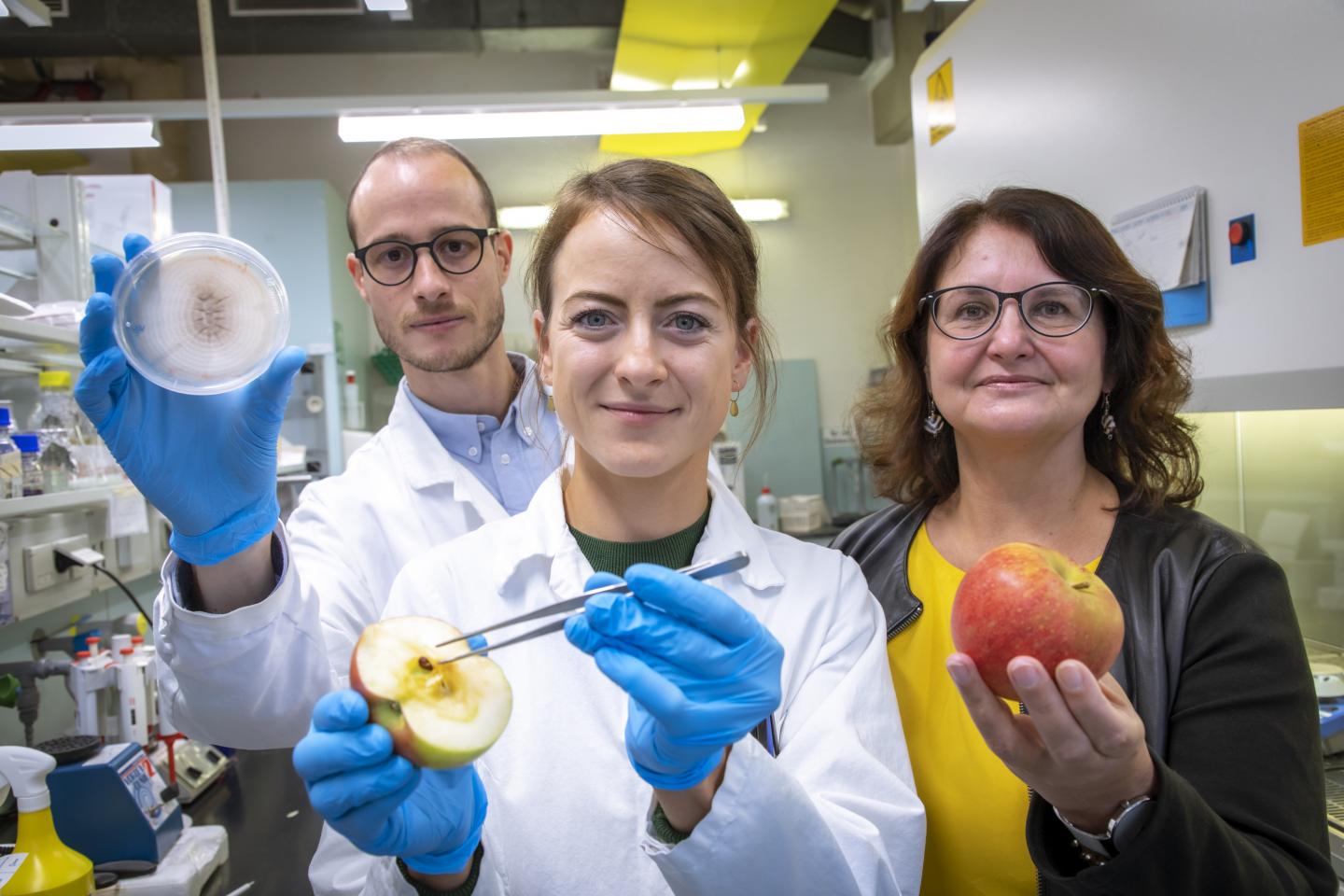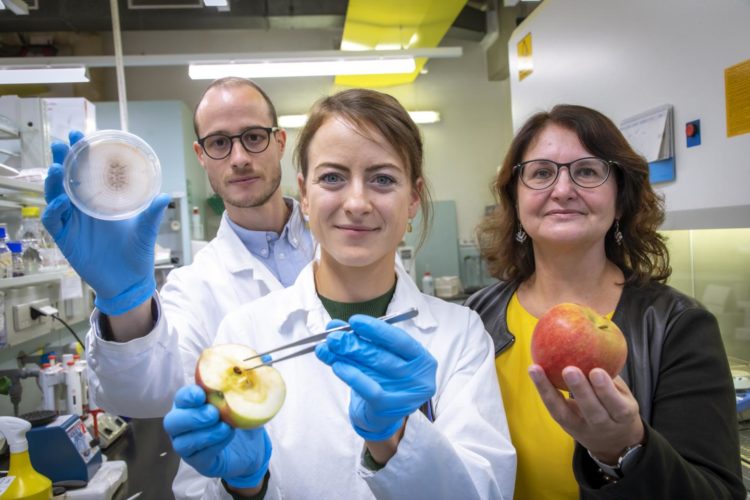Research team from Graz, Austria, develops biological methods to improve the shelf life of fruit and vegetables

Credit: Lunghammer – TU Graz
The crops have been harvested. Now it is important to store the various crops well and to preserve them as long and as carefully as possible. Post-harvest losses due to spoilage, however, represent a significant problem along the supply chain and lead to profit losses in the millions. According to the FAO (Food and Agriculture Organization of the UN) statistics, almost half of the world’s harvest (45 percent) of fruits and vegetables are lost on their way to the end consumer. The main causes of these losses are pest or disease infestation and incorrect storage conditions, which lead to rotting or loss of fresh mass due to respiration and evaporation. The only remedy is often the excessive use of chemicals. Researchers from the Institute of Environmental Biotechnology at TU Graz in cooperation with the Austrian Centre of Industrial Biotechnology (acib) and industrial partners have successfully tested ecological methods that improve the storage of apples and sugar beet – representative examples for other types of fruit and vegetables.
Shelf life of apples significantly increased
Hot water treatment (HWT) has proven to be a sustainable method for reducing fungal fruit decay after harvest in a large number of crops. In this treatment, apples are briefly dipped into a hot water bath. This “heat shock” stimulates the apple’s natural defence mechanisms, the principle of action has not yet been fully clarified. Nevertheless, there are always outbreaks of pathogens in storage and apples spoil.
In a laboratory experiment, the head of the Institute of Environmental Biotechnology, Gabriele Berg, PhD student Birgit Wassermann and PhD student Peter Kusstatscher, have now successfully tested a method that significantly improves the shelf life of organic apples through the combined use of HWT and biocontrol organisms. Birgit Wassermann explains the experimental setup: “We infected organic apples with two of the most important putrefactive agents, then treated them with hot water and a biocontrol agent designed by us. This combined approach enabled us to either kill the post-harvest pathogens completely or to reduce the infection diameter to a maximum in about 60 percent of the apples treated in this way.” Compared to the control group – apples that were only treated with HWT – the combi-method showed 20 percent better results in the resistance of the apples to storage rot. The additive protective effect of the biocontrol agent obtained from the apple microbiome of native organic apples for the control of the storage moulds could be clearly demonstrated. The results of the study were published in the journal Frontiers in Microbiology.
“This combined approach is a sustainable and ecologically sound way to reduce apple blight. On the basis of this method, we can optimize apple storage together with industrial project partners,” summarizes Gabriele Berg, head of the institute.
The apple microbiome remains intact
At the same time, Gabriele Berg and her team have investigated for the first time how the hot water treatment affects the microbiome of the apple, i.e. the entirety of all microorganisms. Together with an Austrian organic fruit company, the researchers were able to show in a trial on an industrial scale that the natural microbiome of apples remains unchanged through HWT treatment, whereas harmful fungi are almost completely contained. This proves that HWT leads to the release of certain plant defence metabolites that kill pathogens without affecting the natural apple-associated microbiome. The close connection between the plant and its microbial symbionts is thus confirmed once again. Just a few weeks ago, the same team of researchers at Graz University of Technology, led by Gabriele Berg and Birgit Wassermann, caused a stir with their study on the composition of the apple microbiome. With every apple we eat about 100 million bacteria, but the microbiome of an organic apple differs considerably from that of a conventional apple. Stored apples with rotten spots also contain a fundamentally different microbiome, which consists of 99 percent fungi and only one percent bacteria.
Biological crop protection also effective for sugar beet
Not only apple farmers, but also the sugar beet industry suffers millions in losses every year due to storage rot. In cooperation with the Austrian Centre of Industrial Biotechnology (acib), the research team has also devoted itself to this topic and developed an environmentally friendly crop protection agent together with one of the largest European sugar producers and the Graz start-up Roombiotic. acib researcher Peter Kusstatscher designed his own biocontrol agent for this purpose and tested it under industrial conditions. “The treatment of the beets leads to significantly higher sugar levels after storage,” explains Peter Kusstatscher. In addition, a process was developed that shows which beets from which fields are particularly susceptible to storage rot even before the beets are harvested and therefore must be processed quickly. The research results could considerably minimize economic losses in the future, especially since the sugar losses occurring in Germany alone currently cause more than half a million euros of damage per day.
###
Media Contact
Barbara Gigler
[email protected]
43-664-608-736-006
Original Source
https:/
Related Journal Article
http://dx.





